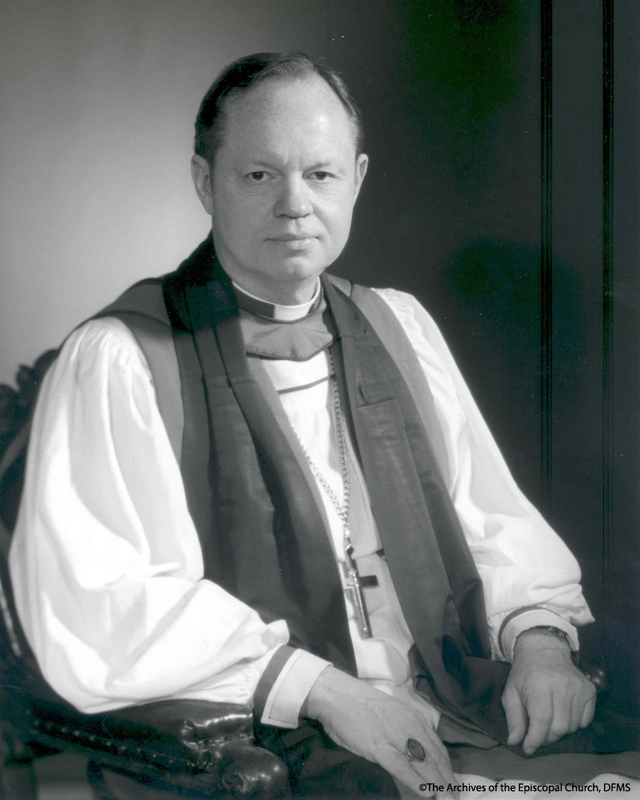John Maury Allin, 1921-1998
In the Midst of Profound Change
Bishop Allin was elected as the twenty-third Presiding Bishop of ECUSA in 1973. His tenure commenced at a time of considerable turbulence in the Episcopal Church that began with the episcopate of Presiding Bishop John Hines in 1965. Hines was a social progressive whose advocacy of civil and women's rights and opposition to the Vietnam War caused institutional tremors with far reaching consequences for the relationship between General Convention and the diocesan and parochial jurisdictions of the Church. Chosen as a steadying force for the Church, Allin faced the tumultuous 1970s with a talent for compromise and a resolve to promote reconciliation. While Bishop of Mississippi he had helped to found the Committee of Concern, an ecumenical and civic alliance organized to raise funds to rebuild over 100 Black-congregation churches that had been burned by white racist groups.
Perceived as a traditionalist within a liberal Church, John Allin continued to push for the Church to address issues of social justice. His offer to resign after the General Convention voted in 1976 to permit the ordination of women, an issue on which Allin was firmly opposed, was answered with a House of Bishops resolution that respected his, “right to hold a personal conviction on this issue” and that of any church member who opposed women's ordination. Allin stayed on, overseeing yet another major change within the church during his term with the 1979 adoption of a new edition of the Book of Common Prayer for standard use.
Bishop Allin seized the opportunity to channel the Church’s restless energy into a common mission enterprise even in the face of these divisive issues. He single handedly pursuaded a reluctant Executive Council to launch a national funding raising initiative in support of programs to alleviate poverty and injustice, clergy education, and congregational development. “Venture in Mission” (VIM) was a major fundraising success that greatly expanded social justice programs and ministry during the 1970s. VIM was a tremendous success in the local dioceses, far outreaching its $100 million goal and funding hundreds of still-active Church programs and community non-profits. [Sources]


